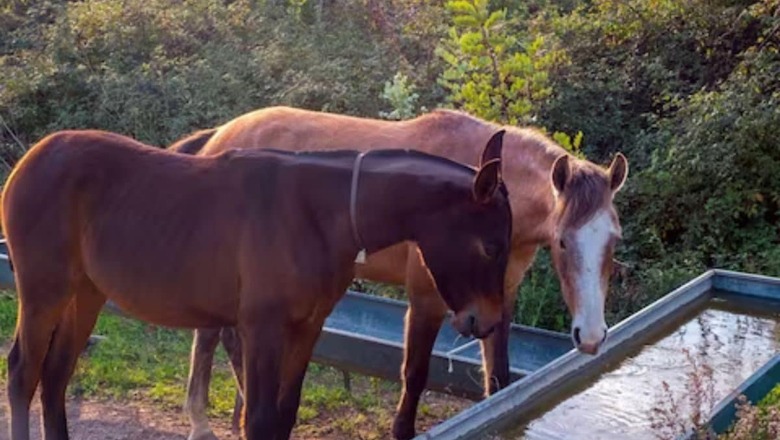
views
Numerous intriguing claims often circulate on social media, sparking astonishment and one such viral piece of information suggests that horses never drink dirty water, irrespective of their thirst levels.
According to reports, horses possess a strong aversion to drinking contaminated or foul-smelling water. Their acute sense of smell and taste plays a pivotal role in helping them avoid consuming water that could be harmful to their health. If the water doesn’t meet their standards in terms of taste and appears cloudy, horses instinctively recognise it as potentially dangerous and refrain from drinking it. This keen sense serves as a crucial defence mechanism to safeguard their well-being.
Interestingly, even seemingly natural substances like blue-green algae, which can be toxic, may go unnoticed by horses. The deciding factor is often the taste- if the water doesn’t meet their approval, they will abstain from drinking it. Regardless of its clarity, horses will refuse water that carries unpleasant odours or tastes.
Despite their large size, horses typically consume relatively small amounts of water, relying on grasses with low water content. Water is essential for their digestive processes, particularly in effectively breaking down significant quantities of fibre. Additionally, maintaining body temperature, partly achieved through sweating, necessitates an adequate water supply. On average, horses consume five to ten gallons of water per day.
Horses, classified within the family Equidae and class Mammalia, are large herbivorous mammals with distinctive flowing manes and solid hooves. Belonging to the Equus ferus subspecies Equus ferus caballus, these animals have an average lifespan of 25–30 years, with some exceptional cases reaching into their 40s and 50s.
In terms of diet, horses, being herbivores, graze on green pastures in their natural habitat. Domesticated horses receive a combination of grass, hay, and bran (rolled oats and barley), along with supplementary blocks of salt and minerals to meet their nutritional needs. Despite their seemingly modest food intake, horses graze throughout the day, typically consuming 1-2 per cent of their body weight in roughage.


















Comments
0 comment